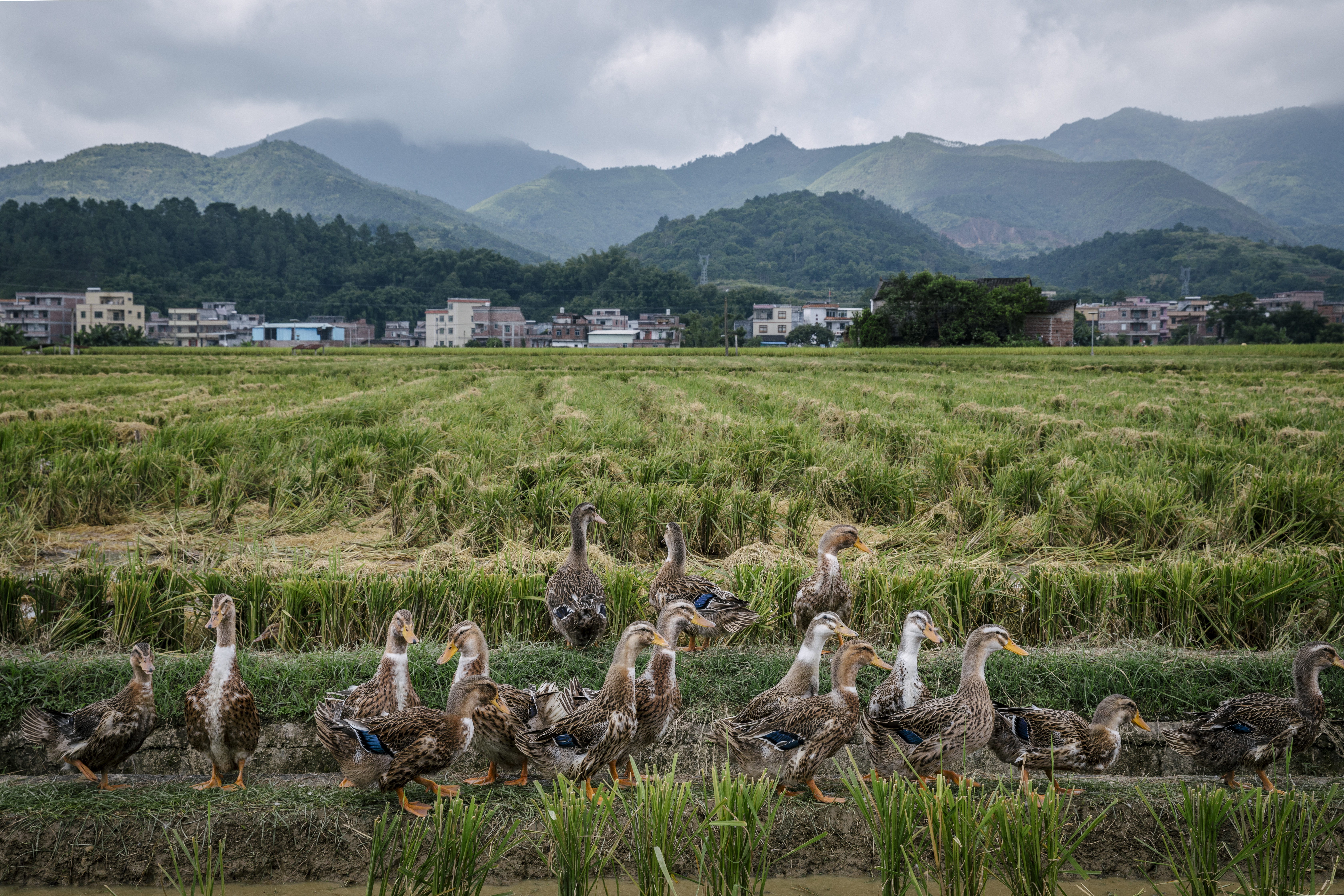Measures put in place to control the spread of the COVID-19 virus could lead to a massive disruption to food supplies. Following a Call to Action for World Leaders, the FOLU community is working to protect food supplies, farmers, others involved in the production of food and vulnerable communities, as well as support a sustainable recovery to grow back better. We are sharing a collection of stories from communities around the world who had put in place sustainable farming and food practices before the pandemic occurred. These are the kind of solutions that could now play a role in a resilient recovery.
Revival at the farm: Ducks to the rescue in Chinese rice paddy fields
Against a backdrop of mountains in South China, rice paddy fields can be seen painting the land with their familiar green stripes. At first glance, nothing seems out of the ordinary at the Yacan Mi rice farm in the Guangdong Province, but among the wet paddies and below the grey sky, hides an ensemble of feathery guests.
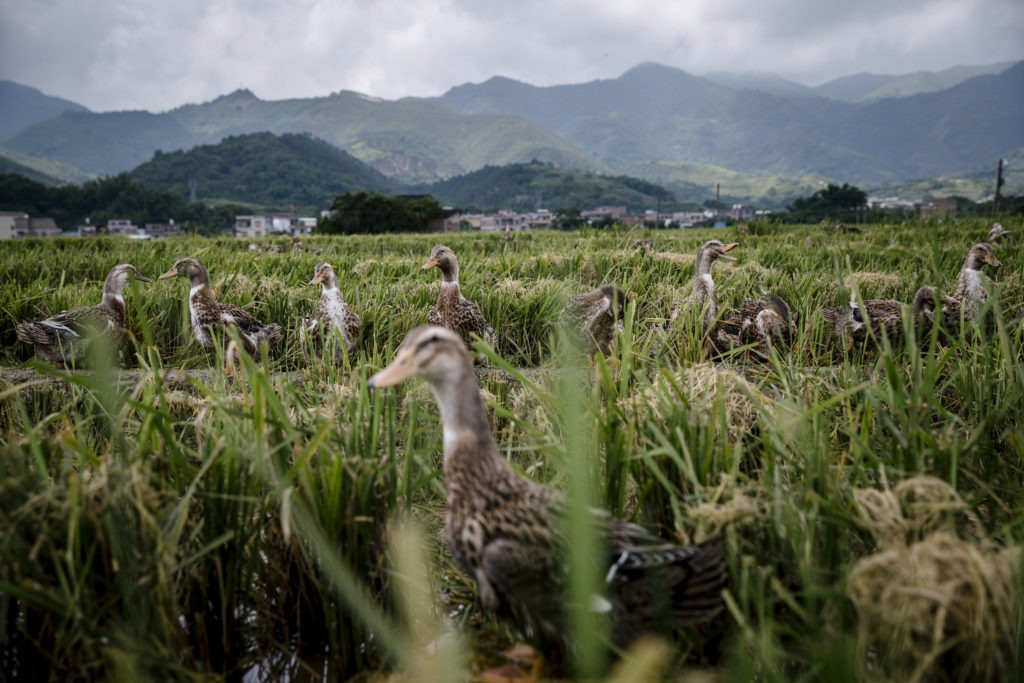
Ducks roaming freely in the harvested fields of the organic Yacan Mi Rice Farm in the Guangdong Province of China./Ian Teh for Panos Pictures/Food and Land Use Coalition
Ducks most commonly live on or around rivers or ponds. But at Yacan Mi, ducks have a slightly different home. These ducks roam freely in the flooded harvested fields, providing them an ideal environment – but besides their enjoyment, what role do these ducks play in Chinese agriculture?
Rice crops thrive in wet and extremely fertile conditions, conditions also perfect for weeds. In these environments, it can be difficult and expensive for farmers to keep weeds and pests at bay. Overuse of pesticides and artificial fertilisers can pollute the environment and pose a risk to human health. This is where the ducks come into play.
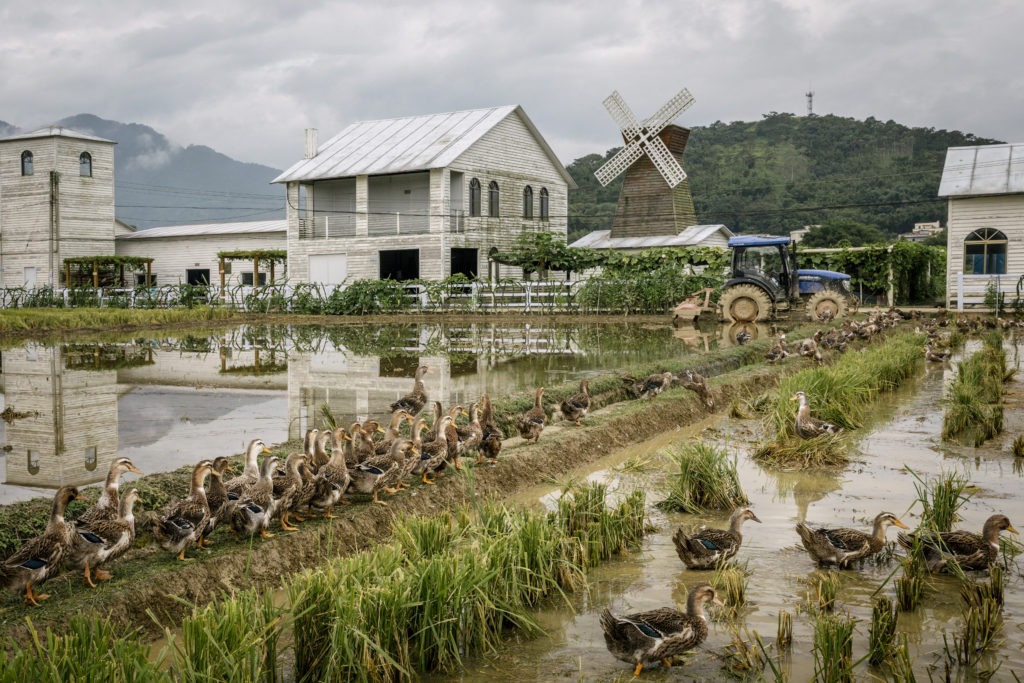
Ducks roaming freely in the harvested fields of the organic Yacan Mi Rice Farm in the Guangdong Province of China./Ian Teh for Panos Pictures/Food and Land Use Coalition
Ducks at Yacan Mi protect the rice crops in many ways. They feed on the weeds as well as insects that may damage the rice crop, and help fertilise the soil through their droppings. Their ability to swim around the paddy means they are perfect for the job, helping the farming process and creating a natural environment for the rice crop.
This way of farming is one type of regenerative agriculture, a system of farming practices and principles used to increase biodiversity, enrich soils, improve watersheds, and protect ecosystems. It aims to capture carbon in the soil as well as above ground through trees, shrubs and fallen leaves and branches – helping to reduce carbon in the atmosphere. At the same time, these practices can increase yields, build resilience to degradation, and improve livelihoods for farmers. The Growing Better report by the Food and Land Use Coalition (FOLU) finds that investing in regenerative agriculture has the potential to offer around 1.2 trillion USD a year in benefits by 2030.
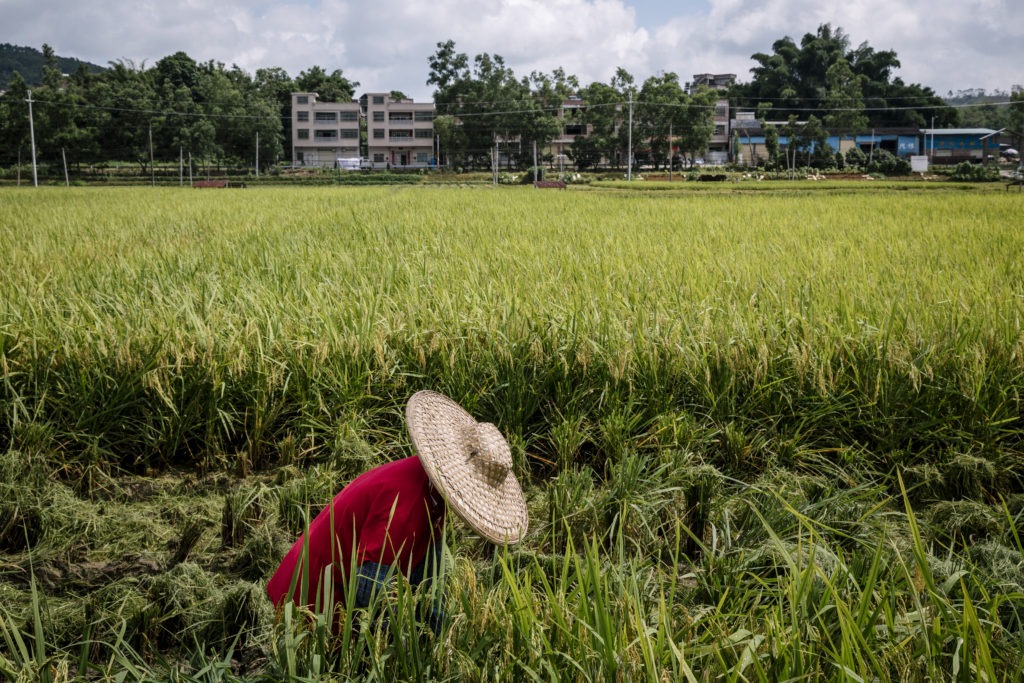
Farmer harvests rice at the organic Yacan Mi Rice Farm in the Guangdong Province of China./Ian Teh for Panos Pictures/Food and Land Use Coalition
When ripe, the rice at Yacan Mi is harvested by hand and machinery, then sun dried and stored in local facilities. The farm is also committed to reducing food loss and waste and only dehulls the rice after receiving orders.
The ducks’ journeys do not end in the paddy field. When the season is over, the free-range ducks are sold to local restaurants and grocers as a rich source of protein. This type of duck is known for its high-quality meat, and the meat from this farm is certified organic (according to Chinese standards).
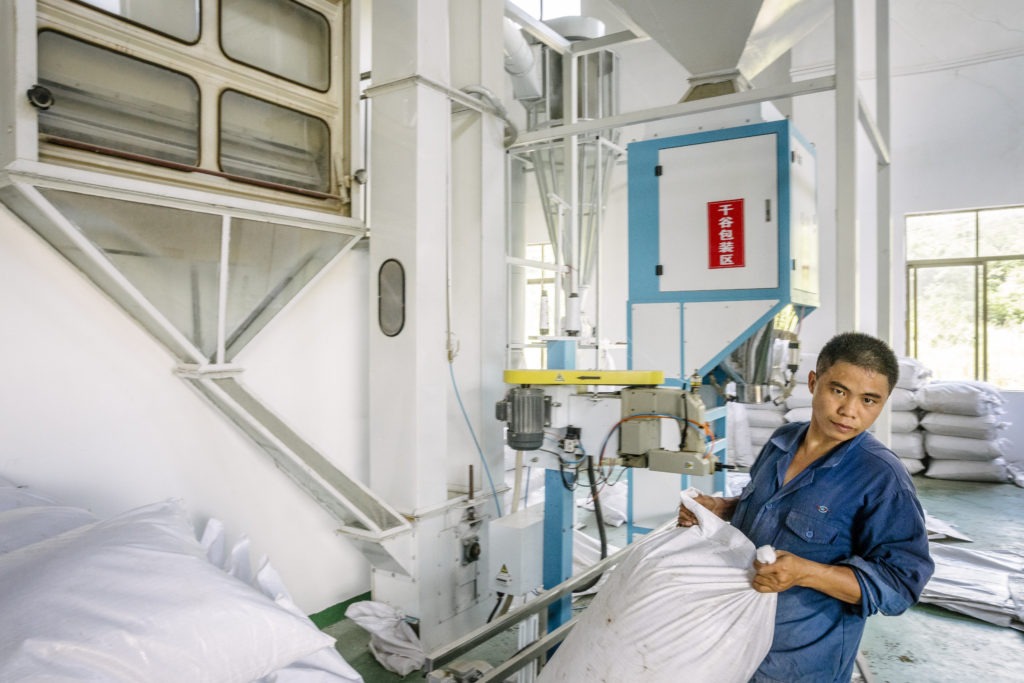
Worker packaging rice after harvest at the organic Yacan Mi Rice Farm in the Guangdong Province of China./Ian Teh for Panos Pictures/Food and Land Use Coalition.
This is a project supported by the South China Agricultural University, and one of many solutions that play their part in creating more sustainable food and land use systems. Here, a natural ecosystem and community exist side-by-side through a nature-first and local approach – providing two important food sources for people without harming the planet.
FOLU has a country platform in China, housed within the World Resources Institute China office. For more information, visit the FOLU China page here.


